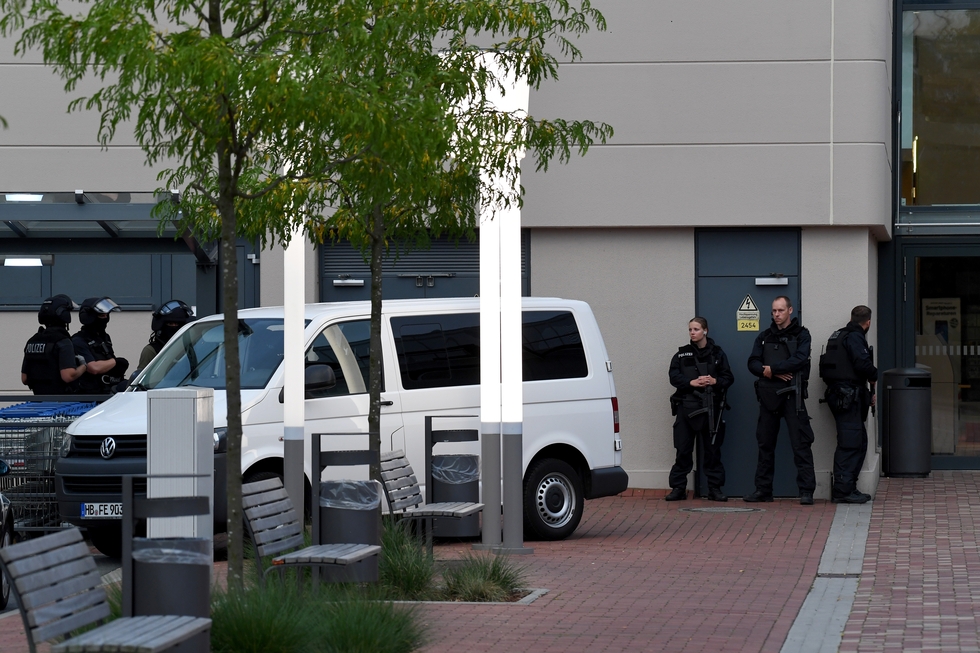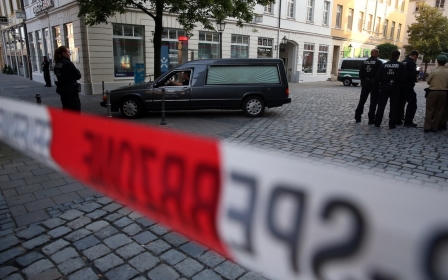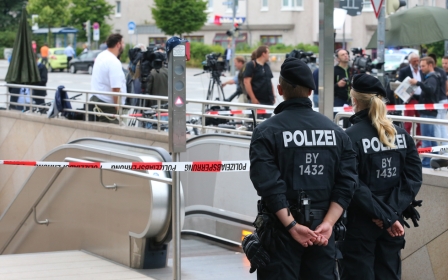German counter-terrorism adviser calls for 'national prevention strategy'

A German counter-terror policy adviser has called for a "national prevention strategy" to deal with the rise of terror attacks in the country, warning that recent attacks could be a precursor to a much larger strike.
Daniel Heinke, Policy Planning Staff and Special Affairs Directorate for the Interior Ministry of the city-state of Bremen, warned the audience at the 'ISIS in Europe" conference at King's College London that the recent spate of attacks in Germany could potentially be aiming to "irritate" law enforcement in the country in order to distract them from an upcoming threat.
“What we should do is try to develop an idea how to respond to these threats, how to have an overall approach," Heinke said.
The German government estimates that there are 820 citizens who have travelled to Syria "out of an Islamist motivation", he said, meaning that not all have necessarily gone to fight in the war, but also to serve a variety of purporses and work with a variety of groups.
But the country's current system is organised locally with different districts using different strategies and services to deal those returnees and social tension, said Heinke
“In some cities, in some areas, they are addressed directly by social services and they try to reach out to them to reintegrate them into society," said Heinke "In other areas, not so. And we have no clear idea what to do.”
"It doesn’t work to have a strategy in district and then another strategy 20km away," he added.
Although in the 20th century, Germany experienced numerous attacks from Neo-Nazi and Marxist-Leninist groups, there had been, in Heinke's words "no real jihadi terrorism" until 2011, using the term that refers to groups like al-Qaeda and the Islamic State (IS).
On Thursday, German chancellor Angela Merkel warned that Germany was locked in “a struggle, or a war, if you like” with IS and called for an "early warning system" to detect signs of radicalisation among refugees.
"I didn’t say this was a going to be simple - that we could just do it," she said. "But I am still convinced that we can do it. This is a historic test in a time of globalisation.”
Merkel reiterated plans for more Internet surveillance and said she would be hiring consultants to examine Germany’s deportation system.
There have been four assaults in Germany in the span of two weeks, two of them attributed to asylum seekers had pledged allegiance to IS.
The incidents have given a boost to far-right groups in Germany and even former supporters of Merkel, who warned that her decision to admit hundreds of thousands of refugees into Germany could lead to violence and instability.
An article this week by the Bavarian newspaper of the Christian Social Union, one of Merkel's coalition partners, slammed the chancellor for her open door policy to refugees.
“The chancellor has subjected us to a security risk with her open borders and arms,” the editorial stated. “Tens of thousands of people of fighting age who haven't been properly registered are in our country. Of many of them, the state neither knows their proper name, nor their right age, nor their current place of residence.”
Germany has been fairly unique in Europe in having IS attackers come from the ranks of refugees. The majority of attacks carried out on the continent have come from home-grown militants.
Also speaking at the 'ISIS in Europe' event, Rik Coolsaet, professor of International Relations at Ghent University in Belgium, said that more nuanced understanding of the concept of "radicalisation" is needed and described the idea of 'flash radicalisation' - in which an individual becomes a militant over a short period of time - as "b***shit".
Coolsaet said that the idea of “no future” and having “no prospects in life” connected the different people who travelled to join IS in Syria or to carry out attacks in Europe - and this sense of hopelessness can be “real or perceived".
Previous waves of foreign fighters, like those travelling to Bosnia in the 1990s, were more likely to be drawn in by their social circles than foreign recruiters, he said.
“The idea of subculture much more than radicalisation might be the common denominator," Coolsaet added.
However, Heinke argued that concerns over "Islamist-motived terrorism" should not be conflated with Islamophobia since the threat from the former was completely real and not irrational.
New MEE newsletter: Jerusalem Dispatch
Sign up to get the latest insights and analysis on Israel-Palestine, alongside Turkey Unpacked and other MEE newsletters
Middle East Eye delivers independent and unrivalled coverage and analysis of the Middle East, North Africa and beyond. To learn more about republishing this content and the associated fees, please fill out this form. More about MEE can be found here.




